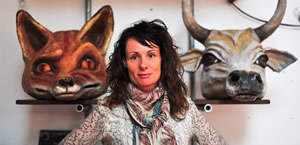Máiréad Ní Chróinín – Theatre Director
Máiréad is the co-director of Moonfish Theatre Company, Festival Manager of Galway Theatre Festival and is also undertaking a PhD at NUI Galway.
More from...
Tell us about yourself
I'm originally from Galway. We were living in the city, in Tirellen, until I was about 11 and then we moved out to Craughwell. I went to all Irish primary and secondary school - Gael Scoil Dara and Colaiste na Coiribe. My parents work in NUIG, so we've always been city-based, even though we lived out in the county. There's three girls in the family - myself Ionia and Sorcha; I'm the eldest. Growing up, we were always brought to things like the Arts Festival, Macnas and Footsbarn Theatre. We'd always come away from those doing plays ourselves, for our parents and we'd make films during the summers with our friends, so there was always that creative thing going on. When it came to going to college, I went to Glasgow to study politics. I knew I'd probably end up being involved in theatre one way or another in college, so I knew that doing politics in college was probably the only time I was ever going to get a chance to read these books or study this kind of thing. Glasgow was brilliant. It's such a fantastic city and there was so much happening there in terms of theatre and art. It was a real eye opening experience in terms of the kind of stuff I was getting to see and go to, like the Edinburgh International Arts Festival.
During college, I did an Erasmus year over in Prague. The ten accession countries were coming in the big bang expansion of the European Union, so I got to travel all around those countries just before they came into the EU. It was just fascinating to see Latvia, Lithuania, Estonia, places that you'd never really thought about before - all the different cities in Poland, Hungary, Romania and all of them having this incredible artistic historical heritage that we hadn't been aware of growing up. For me, coming from somewhere like Galway that has quite a strong Medieval heritage, to go to all these incredible European cities like Talin and Krakow with beautiful medieval heritage was amazing. It was really nice to find that historical connection with those places in Europe. There also a phenomenal theatre heritage, especially in places like Poland and Czech Republic. So it was just great to see all that in practice.
I went back to Glasgow after that and did two more years, then went to Brussels for a six month internship with the the European Commission. I ended up coming back here to vote - it was General Election year. It was also the year of Project 06 in Galway, which was a seminal year for a lot of theatre companies. The energy of that theatre festival really prompted a lot of people to come together and create work all around the city. A lot of the companies started then - we did, Fregoli, Mephisto. A lot of companies or artists who are still around would have got the impetus to create work during Project 06.
So Moonfish started that year you came home...
Yes, but not intentionally. We just wanted to put on a show, just to be part of Project 06. We actually ended up not being part of Project 06, because we were too late to apply. We were like the Fringe of the Fringe and we did it upstairs in Java. It was a piece based on the lives of two female pirates - Anne Bonney and Mary Read. We devised a piece and built in a lot of story-telling songs about women getting dressed up as men and going to war, and a lot of sea shanties and that. The process that we now use in Moonfish, we started then. We didn't really think about it as 'we are setting up a company, we are now constructing our process', we just wanted to do a show, we had to come up with a name and the name 'Moonfish' came up. It comes from a Lorca play called The Public, which I was working on in the first half of 2006. A friend of mine was producing a play in Dublin, so the first thing I did when I came back to Ireland was to work as a stage manager there. The Public is a mad play full of these random images and at one point, one of the characters says to the other, 'Be a Moonfish, I just want you to be a Moonfish'. I thought it such a great name!' So it stuck in my mind.
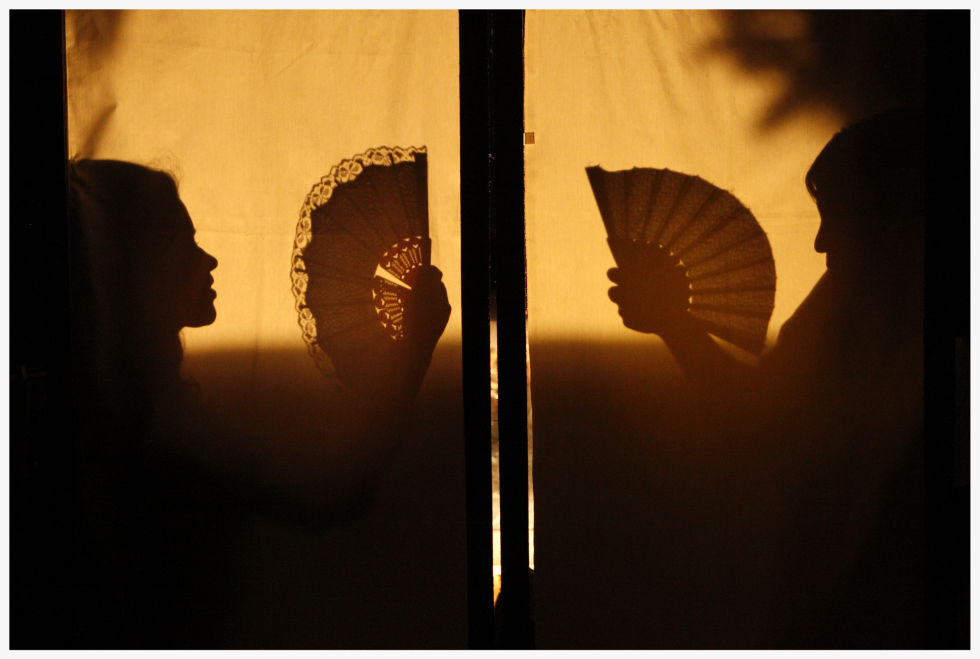
Where to from there?
From there, we had a bit of a hiatus. At that point, it was myself, Ionia and Ionia's friend, Jo who is still very heavily involved in Moonfish. Jo lives in London now, but she works part-time with us. It was the three of us and we roped in our cousin who was over for the holidays from the States. Then we left it for a year because we were really busy with our projects, but Jo was really insistent that we take it to the Edinburgh Fringe Festival, so we redeveloped it for that and at that point, we met other people who have since been heavily involved in Moonfish - our friend Una and Grace Kiely who has been very involved in Moonfish productions as an actor, a creator, and a musician. At that point, we decided we wanted to keep producing. Galway Theatre Festival had been set up by then and our mum, Maura Uí Chróinín, who runs the Galway Early Music Festival, commissioned us to do the kids show for the festival and that became an annual thing.
We ended up doing a few different shows after that. We hadn't figured out a process at that stage - why things worked for us and some things didn't, so we ended up doing a couple of shows based on play scripts. Around that time, Ionia and Grace had started working with Branar company, who had started looking at European children's theatre companies and how they took a much longer development trajectory. After we experienced this new structure that Branar had taken on, we were like, 'OK, that's the way we really want to work'. So the summer after that, in 2009, we said we'd go away and do a live-in workshop. Our performers treated it as a holiday because we didn't have any money to pay them, so we went down to Johnson's Hostel in Kinvara and stayed there for the guts of two to three weeks and decided on The Secret Garden.
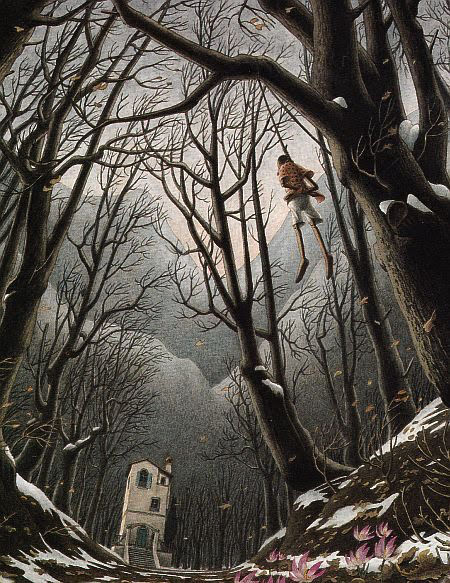
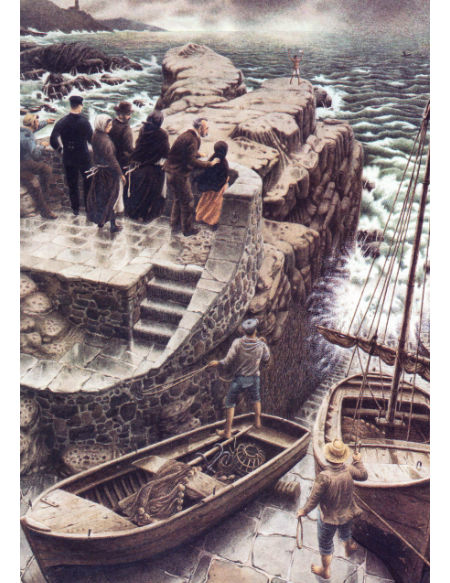
We developed a show that we really loved. We toured it, and it did really well. Then we developed Tromluí Phinocchio - Pinocchio - A Nightmare, which is again based on the book, a version of the original Pinocchio story which is much darker and weirder than the Disneyfied version. Our dad had a book of an Irish translation that had been done directly from the Italian into Irish and he produced a new version of that translation with these beautiful pictures by the artist Roberto Innocenti. It's just a beautiful version. People were asking why we decided to do Pinnochio bilingually, and it was because we had the book from when we were younger and Pinocchio to us had always been an Irish language story. Because of that, we just wanted to try it out. We wanted it to be totally accessible.
We did Pinocchio for two years and then we moved on to do Star of the Sea, which is the latest production. We originally did it in 2014 as a co-production with the Taibhearc for the Galway International Arts Festival in 2014. Then last year, we got funding from the Arts Council to take it on a national tour. We started off in the Dublin Theatre Festival and it continued around the country. It went down really, really well. That's where we're at at the moment.
So what are you working on now?
At the moment, we're theatre Artists in Residence in the River Bank Arts Centre, which is a theatre in Newbridge in Kildare. We've been doing a show with their library bus service and we've been exploring immersive one person shows for young people.
You're doing more theatre work with children now?
From The Secret Garden onwards, we were interested in teenagers, because there's not a lot of theatre made for them. A lot of it is just whatever's on the curriculum. We feel that that's such a shame because it's a great age to experience theatre.
Why do you think that is?
There's just so much when you're in primary school - it's all about engaging your creativity and really letting loose. There's no barriers. Then it suddenly stops and it's all about the Junior Cert, the Leaving Cert, what you're going to do for the rest of your life. It's so regimented - there's not a lot of space left for young people to imagine, to have a sense of wonderment or a sense of exploration. The socialisation of young people through school, while it's great in one way, in another way, it really dampens down that impetus to be curious or to just go for it and open things and look behind things. That essence that's at the heart of creating anything is, what are the questions in your mind and how are you going to answer them? How are you going to look at them to figure it out, and how are you going to put this and this together in your brain?
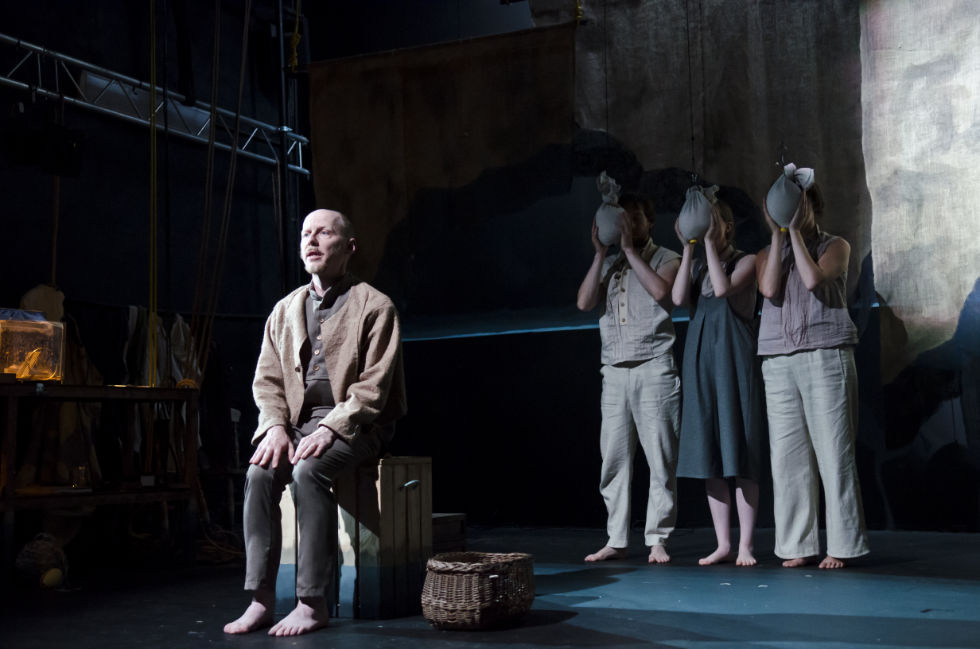
How did being involved in the arts and theatre enrich your life growing up?
I suppose it's just the pleasure you get out of creating and being involved. There's lots of different ways. There's the pleasure of using your imagination, using that muscle in your mind and realising ideas. There's also the pleasure of working with like-minded people in making ideas come together and they're always greater than the sum of their parts. When you're devising with people, it's not just your idea, it's lots of different ideas all coming together and then each changing each other and becoming something different. There's also the joy in presenting that to people and seeing their reactions. It's almost a conversation, a really interesting conversation, because it's just engaging with the world and engaging with people. It's an energy, I guess.
Is it full time?
No, it's part time. I'm also doing a PhD on theatre and locative media at the moment and I'm festival manager for Galway Theatre Festival, so I alternate between the three things.
How are you enjoying working with the Galway Theatre Festival?
I love it, because when you're doing Moonfish, you're doing only one project for a long period of time and while you do get to work with new people, it's a limited amount of people that you can bring into any one project. Whereas when you're working in the Theatre Festival, you just get to meet so much more of the community at the same time. We have projects with Little Cinema, Galway Community Circus, Galway Dance Project, Macnas Young Ensemble, Druid Fuel, so it's really nice networking. I really like that part and also, coming up with different project ideas and creating other opportunities for artists to be more connected, because we're not the younger generation anymore - there's an even younger generation in Galway. So it's about encouraging them, passing on some of the things that I would have loved someone to tell me when I was starting out.
Any mentors or influencers along the way?
Macnas has always been a huge influence on how we work. Druid to a certain extent - from their vision and from how they present themselves and coming up with really big projects. We haven't been able to do that yet, but we'd really love to dream big. The DruidShakespeare is such an epic project to come up with and achieve and realise. Such ambition and integrity at that level. Macnas, from a longevity and artistic ambition perspective, have been a huge influence on us, especially under Noeline. Also, just all the way through in terms of the imagination and the European influence. Macnas have been very influenced by European spectacle and carnival and that goes back to the fact that we're interested in telling stories beyond language.
What is it about being in Galway that keeps you here?
I think definitely the people. There's an incredible network of expertise, a passion and commitment, and people who are really interesting to work with. There's just a continuous stream of new people, which is really nice. It's international as well, it's not just all Irish and that's really valuable. They're coming at it from different interests. It raises the level of everyone's production qualities and the scope of what they are imagining when you have those conversations. For me, and for a lot of us in Moonfish, the fact that Galway is a bilingual city is a big influence. The fact that we can find a lot of people here who can speak Irish. It's also a really musical city - practically every performer you meet can play an instrument or sing. With the kind of theatre that we create, having that pool to draw from, it's really great. For me, being able to work in Irish is amazing. There's something lovely about being able to shift between the languages. Even with the GTF, half our team speak Irish, which is lovely. It's a hard thing to explain but it's like, if you were living in Germany the whole time and you suddenly realised that there was somebody there that you could speak English with. There's something very relaxing about speaking a language that you like. It's just nice to have the option to shift between the two. In Galway, it's big enough for you to have a lot of different people to work with, but it's small enough so that all the different art forms are in conversation with each other. In bigger cities, the theatre scene is so big that theatre people only see theatre people, or film people only ever see film people, whereas in Galway, it's small enough that you can have a chat with someone in 126 or Little Cinema or the Fleadh or Cúirt. I think that makes for really interesting art, because you're not just in your own little art form - you're always seeing other people's work or the performers.
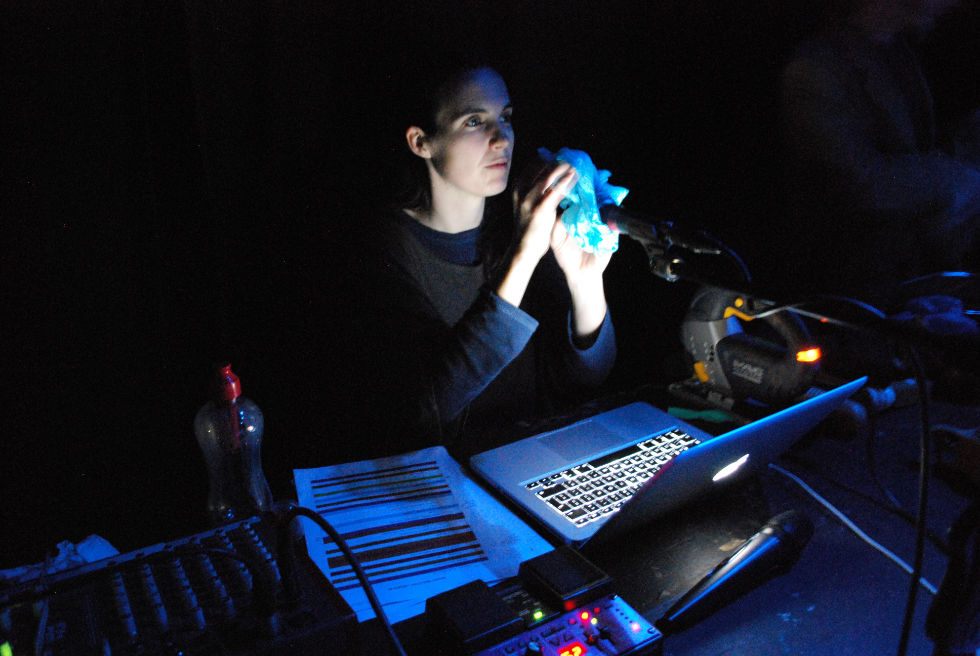
What would you like to see happening for the city?
Personally, I think it would be great if we could expand the very vibrant arts scene that's in the city centre out to all the different suburbs of Galway and really make it a city-wide experience. So places like Doughiska, Renmore, Knocknacarra, Mervue or Ballybrit, wherever it is, that they are really connected into the city centre energies and there are projects that engage with communities in that space. Then to also bring the people who live in those communities, give them a sense of ownership over the art that happens in the city centre. I feel I'm very lucky to have been brought up going to Macnas parades, but sometimes I meet Galway people that were never brought to a Macnas parade and it blows my mind that you could grow up here and never experience the culture and the arts that happen. I'd like to make sure that it's very possible for young people or adults everywhere in Galway to feel that the arts are part of their city and that they have ownership of it, that it's not something that is elitist. I'd like that people feel very comfortable walking into any of the arts facilities around Galway and that they feel very comfortable critiquing the different art that they see around Galway.
From an arts point of view, a lot of people leave who really would like to stay and there's just not the spaces for them or the networks for them to sustain it. There's a certain lack of infrastructures and investment that's needed, so I think for that to come out of 2020 or the cultural strategy would be amazing. All the people are there to make it happen, there just needs to be a structure in place and a long-term commitment to funding and infrastructure. If Galway is already vibrant, can you imagine if we kept all the people who were leaving? Exponentially, just by keeping people here, you're widening the arts space and you're completely widening how affected everyone in the city is by arts and culture. I'd really like to see that happening in the city.
- Patrick Lonergan - Previous
- Next - Moe Honan
